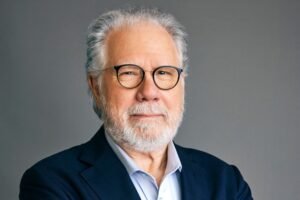Alejandro Slokar: constitutional guarantees and human rights

Alejandro Slokar, referente del derecho penal argentino y actual presidente de la Cámara Federal de Casación Penal.
Alejandro Slokar is one of the most prominent figures in criminal law in Argentina. Judge of the Federal Criminal Cassation Court and university professor, his career combines a commitment to human rights, academic rigor, and a garantist vision that has shaped the course of national jurisprudence. With a career of over four decades, he has consolidated himself as a critical and respected voice within the judicial system.
Education and early commitment
Graduated in law from the National University of La Plata, Slokar continued his education in Germany, where he expanded his studies on criminal law, criminology, and human rights. His time in Europe marked his legal perspective, particularly his adherence to a critical criminal doctrine sensitive to the Latin American context. He was a disciple of jurist Eugenio Raúl Zaffaroni, with whom he shared academic and judicial spaces.
His entry into public service included a key stage in the National Secretariat of Human Rights, where he actively collaborated in promoting policies of memory, truth, and justice. This connection with human rights has not been anecdotal or formal: he has maintained throughout his career the need for justice that is not only punitive but transformative.
Criminal cassation court: a voice with weight
Since his appointment as a judge at the Federal Criminal Cassation Court in 2008, Slokar has been involved in cases of high institutional sensitivity. He has integrated and presided over various chambers, and currently serves as president of the court, a position he assumed in 2021. His presence at the highest criminal court in the country has allowed him to set positions on key issues such as pretrial detention, the progressiveness of penalties, and international standards on the rights of individuals deprived of liberty.
His legal perspective, although it has generated intense debates, is based on a rigorous interpretation of the Constitution and international treaties. Distancing himself from punitive simplifications, Slokar has always defended the need to preserve procedural guarantees even in the most complex cases, a stance that distinguishes him in the current context.
Publications and critical thought
Alejandro Slokar is the author of numerous articles and books on criminal law, criminology, and human rights. His work Manual of Criminal Law General Part, written alongside Zaffaroni and Alagia, has become a mandatory reference for students and professionals in law throughout Latin America. He has also coordinated interdisciplinary research and published works in specialized journals from various countries.
His public interventions, both in conferences and in academic media, reveal a well-articulated and provocative thought that seeks to challenge judicial power structures and propose alternatives centered on human dignity. His defense of non-selective and non-discriminatory justice has made him a reference of a progressive legal movement.
Controversies and legal firmness
In a political and media environment often hostile to garantist positions, Slokar has not avoided debate. His position on security policies, the selectivity of the penal system, and prison conditions has been interpreted by some as “soft,” although his legal argumentation is based on international standards and constitutional principles.
He has been criticized by those advocating for a more punitive vision of justice, especially when he intervened in cases regarding the release or mitigation of sentences. However, he has always upheld his decisions with solid legal grounds, appealing to control of conventionality and Argentina’s human rights commitments.
A jurist with a democratic vocation
Beyond his judicial role, Alejandro Slokar has demonstrated uncommon consistency in his career. His professional practice, teaching, and public interventions all reflect a comprehensive view of law as a tool for consolidating the rule of law, preventing authoritarianism, and building a fairer society.
With over four decades of experience, his figure represents a committed, reflective legal tradition that is sensitive to contemporary challenges. His name remains associated with an understanding of justice where legality is not opposed to humanity, and where the judiciary must serve liberty, not punishment.




